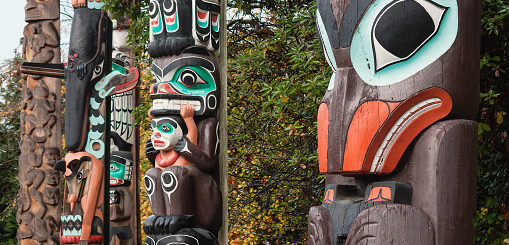Tao of Democracy: East-West Ideals of Governance

Hey there, amazing readers! 🖐️ Just a quick note: yes, we know there are a lot of ads here. Trust us, we get it—it’s not the prettiest look, but they help us keep this blog alive and kicking. Those pesky little ads cover the costs of all the behind-the-scenes magic, from hosting and tech stuff to creating content we hope you’ll love.
We’re committed to delivering quality posts, and your support (even just sticking around despite the ads) means everything to us. So, bear with us, and thanks for helping us keep the good vibes rolling. Now, on to the fun stuff! 😉
TRANSLATE BUTTON AT THE END OF THE ARTICLE
Overview: Tao of Democracy: East-West Ideals of Governance
Governance is a fundamental aspect of society, shaping the way a country is run and the rights and freedoms its citizens enjoy.
Throughout history, different cultures and philosophies have developed unique approaches to governance, each with its own set of ideals and principles.
In this article, we explore the Tao of Democracy – the intersection between Eastern and Western ideals of governance, specifically focusing on Taoism as a philosophy and its relevance to democracy.
Understanding the Taoist philosophy of governance
Taoism, an ancient Chinese philosophy, is grounded in the concept of Tao, which can be translated as the "way" or the "path." Taoist philosophy emphasizes the natural order of things, harmony, and balance.
In the context of governance, Taoism advocates for a non-intrusive and spontaneous approach, where rulers act in accordance with the flow of the Tao, rather than imposing their will on the people.
Key principles of Taoism and its relevance to democracy
There are several key principles in Taoism that can be applied to democracy.
One principle is Wu Wei, or non-action, which suggests that rulers should govern with minimal interference, allowing the natural order to take its course.
This idea aligns with the democratic principle of limited government, where the state should not excessively intervene in the lives of its citizens.
Another important principle in Taoism is the concept of Yin and Yang, representing the balance between opposing forces.
In the context of democracy, this principle highlights the need for diverse perspectives and the inclusion of various social groups in decision-making processes.
It emphasizes the importance of harmony and consensus in governance, as opposed to authoritarian or exclusive approaches.
The influence of Confucianism on democratic ideals
While Taoism provides valuable insights into governance, it is essential to acknowledge the influence of Confucianism on democratic ideals in East Asia.
Confucianism, another significant philosophy in the region, emphasizes social order, hierarchy, and the importance of moral virtue.
Confucianism’s emphasis on education and the cultivation of ethical behavior has shaped the way democracy is understood and implemented in countries like Japan and South Korea.
Examining the Western concept of democracy
The Western concept of democracy has its roots in ancient Greece and has evolved over centuries.
Western democracy is based on the principles of popular sovereignty, individual rights, and the rule of law.
It emphasizes the idea that political power should be vested in the people, who elect representatives to govern on their behalf.
In Western democracies, institutions such as parliaments, courts, and a free press play crucial roles in ensuring accountability and safeguarding individual rights.
The separation of powers, checks and balances, and regular elections are also fundamental aspects of Western democracy.
Comparing the Taoist and Western approaches to democracy
While Taoism and Western democracy have distinct origins and philosophies, there are areas of convergence between the two.
Both emphasize the importance of balance, harmony, and limiting the power of rulers.
Taoism’s concept of Wu Wei aligns with the Western idea of limited government.
Similarly, both value the inclusion of diverse perspectives in decision-making processes.
However, there are also significant differences.
Western democracy places a strong emphasis on individual rights and freedoms, while Taoism values the collective well-being and harmony of society.
Additionally, Western democracy relies heavily on formal institutions and legal frameworks, whereas Taoist governance emphasizes spontaneity and aligning with the natural order.
Exploring the balance between individualism and collectivism
One key aspect of the Tao of Democracy is finding a balance between individualism and collectivism.
Western democracies prioritize individual rights and freedoms, allowing individuals to pursue their own interests and goals.
In contrast, Taoist governance emphasizes the collective harmony and well-being of society, valuing the needs of the community over individual desires.
Finding this balance is crucial for effective governance.
Too much emphasis on individualism may lead to social fragmentation and inequality, while excessive collectivism can stifle personal freedoms and individual expression.
Achieving a harmonious balance between the two is a constant challenge for any democratic system.
The role of virtue and ethics in Taoist governance
Taoist governance places a significant emphasis on virtue and ethics.
The ideal Taoist ruler is one who embodies virtuous qualities such as humility, compassion, and wisdom.
These virtues guide the ruler’s actions and ensure that governance is carried out in a just and moral manner.
In the context of democracy, the role of virtue and ethics is equally important.
Leaders who prioritize the common good, act with integrity, and uphold ethical standards can foster trust and maintain the legitimacy of democratic institutions.
Ethical behavior and moral leadership are crucial for ensuring that democratic governance serves the best interests of the people.
The importance of harmony and consensus in democracy
Harmony and consensus are essential elements of both Taoist and democratic governance.
Taoism stresses the importance of harmonious relationships between individuals and communities, promoting social cohesion and stability.
Similarly, democratic governance requires the ability to build consensus and find common ground among diverse groups and interests.
In a democratic society, achieving consensus is a complex process that involves dialogue, negotiation, and compromise.
It requires respecting different viewpoints, seeking common goals, and finding solutions that benefit the majority while safeguarding the rights of minorities.
By prioritizing harmony and consensus, both Taoist and democratic approaches aim to create a cohesive and inclusive society.
Taoist principles for ensuring social justice in democracy
Taoist philosophy provides insights into promoting social justice within a democratic system.
Taoism emphasizes the importance of fairness, compassion, and balance.
These principles can guide policymakers in addressing social inequalities, ensuring equal opportunities, and creating a just society.
Incorporating Taoist principles into democratic governance can lead to policies that prioritize the welfare of the most vulnerable members of society.
It can also encourage a more equitable distribution of resources, access to education and healthcare, and opportunities for social mobility.
By embracing Taoist principles, democratic societies can strive towards a more just and inclusive future.
Challenges and criticisms of applying Taoism to democracy
While the Tao of Democracy offers valuable insights, it is not without its challenges and criticisms.
Some argue that Taoism’s emphasis on spontaneity and non-interference may lead to a lack of accountability and ineffective governance.
Critics also question the practicality of incorporating Taoist principles into modern democratic systems, pointing to the complexities and realities of contemporary governance.
Additionally, critics argue that Taoism’s collectivist orientation may clash with the individualistic nature of Western democracy.
The tension between individual rights and the needs of the community is a constant challenge that requires careful navigation and decision-making.
Integrating Eastern and Western ideals for effective governance
To create effective governance, it is important to integrate Eastern and Western ideals.
By embracing the Tao of Democracy, policymakers can combine the strengths of both philosophies.
Incorporating Taoist principles such as balance, harmony, and virtue into democratic governance can foster a more inclusive and compassionate society.
At the same time, Western democracies can learn from Taoism’s emphasis on non-interference, spontaneity, and the natural order.
By finding the right balance between individual rights and the well-being of the community, democratic systems can evolve to address the complex challenges of the modern world.
Conclusion
The Tao of Democracy offers a unique perspective on governance, combining Eastern and Western ideals to inform democratic principles and practices.
By understanding Taoist philosophy, we can appreciate the importance of balance, harmony, and ethics in governance.
Integrating Taoist principles with the Western concept of democracy can lead to more inclusive, just, and effective governance systems that prioritize the well-being of both individuals and communities.
As we navigate the complexities of the modern world, embracing the Tao of Democracy can help shape a better future for all.

The Enlightenment Journey is a remarkable collection of writings authored by a distinguished group of experts in the fields of spirituality, new age, and esoteric knowledge.
This anthology features a diverse assembly of well-experienced authors who bring their profound insights and credible perspectives to the forefront.
Each contributor possesses a wealth of knowledge and wisdom, making them authorities in their respective domains.
Together, they offer readers a transformative journey into the realms of spiritual growth, self-discovery, and esoteric enlightenment.
The Enlightenment Journey is a testament to the collective expertise of these luminaries, providing readers with a rich tapestry of ideas and information to illuminate their spiritual path.
Our Diverse Expertise 🌟
While our primary focus is on spirituality and esotericism, we are equally passionate about exploring a wide range of other topics and niches 🌍📚. Our experienced team is dedicated to delivering high-quality, informative content across various subjects ✨.
To ensure we provide the most accurate and valuable insights, we collaborate with trusted experts in their respective domains 🧑🏫👩🏫. This allows us to offer well-rounded perspectives and knowledge to our readers.
Our blog originally focused on spirituality and metaphysics, but we’ve since expanded to cover a wide range of niches. Don’t worry—we continue to publish a lot of articles on spirituality! Frequently visit our blog to explore our diverse content and stay tuned for more insightful reads.





